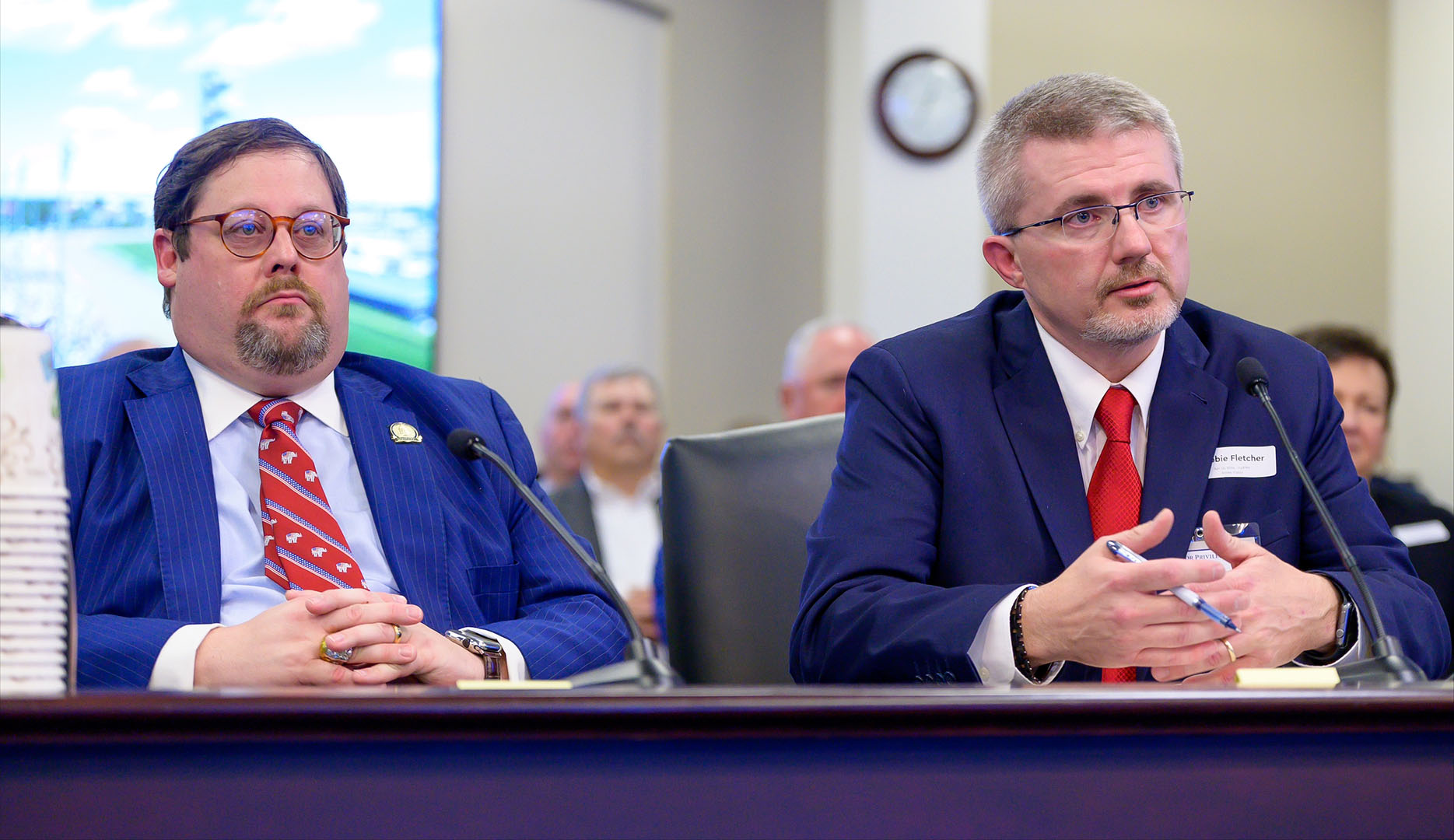In an effort to strengthen the solvency of the Kentucky Teachers’ Retirement System (KTRS), Gov. Steve Beshear this week by executive order created a 23-member work group made up of policy and education leaders.
The Kentucky Teachers’ Retirement System Funding Work Group, to be led by former state senator and former State Board of Education Chairman David Karem, will meet over the coming months to develop recommendations to resolve a funding shortfall and stabilize and secure funding for the system that serves over 75,000 active and over 45,000 retired members.
“Our teachers are the foundation of our educational system for the future of our children and grandchildren,” Gov. Beshear said. “We must assure that the Kentucky Teachers’ Retirement System is able to fully honor our commitments to our teachers and those who retired from teaching. Today I’m asking a group of experts to find ways to ensure the future of the KTRS.”
According to the system’s 2014 actuarial valuation, there is a $14 billion unfunded liability and a 53.6 percent funding status. This is compared with the system’s $571 million unfunded liability and 95.7 percent funding status in 2000.
Gov. Beshear said he recognizes that other study groups have examined the KTRS in recent years, but “since the issuance of the reports by these study groups, a number of changes and improvements have been made by the KTRS. We can utilize this prior work in this effort. It is critical that we explore the options and develop recommendations to aid the 2016 General Assembly as action needs to be taken next spring to address this crisis.”
The members Gov. Beshear has placed on this working group through an Executive Order include:
- David Karem, former state senator and former chair of the Kentucky Board of Education
- David Adkisson, CEO of the Kentucky Chamber of Commerce
- Mike Armstrong, executive director of the Kentucky School Boards Association
- Jason Bailey, research and policy director for the Mountain Association for Community Economic Development
- Mary Ann Blankenship, executive director of the Kentucky Education Association
- State Budget Director Jane Driskell
- Auditor of Public Accounts Adam Edelen, who shall serve as a nonvoting member
- Amanda Ellis, associate commissioner, Office of Next Generation Learners in the Kentucky Department of Education
- Secretary of the Finance and Administration Cabinet Lori Flanery
- Gary Harbin, executive secretary of the Kentucky Teachers’ Retirement System
- State Treasurer Todd Hollenbach, who is also a board member of Kentucky Teachers’ Retirement System
- Secretary of the Governor’s Executive Cabinet Mary Lassiter
- Secretary of the Personnel Cabinet Timothy Longmeyer
- Roger Marcum, chairman of the Kentucky Board of Education
- Brent McKim, Jefferson County Teachers’ Association president
- Brigitte Blom Ramsey, executive director of the Prichard Committee for Academic Excellence
- Tom Shelton, executive director of the Kentucky Association of School Superintendents
- Bob Wagoner, executive director of the Kentucky Retired Teachers Association
- Wayne Young, executive director of the Kentucky Association of School Administrators
- Two members of the Kentucky State Senate designated by the President of the Senate
- Two members of the Kentucky House of Representatives designated by the Speaker of the House.
The work group will review best practices in other states regarding pension benefits, conduct a comprehensive review of funding options and make recommendations for improving the fiscal solvency of the KTRS. The work group may also contract for consulting services.
With the fiscal crisis that faces the KTRS, Gov. Beshear is asking the work group to complete its work and submit its report to him on or before Dec. 1, 2015.
“I applaud Gov. Beshear for tackling the issues surrounding the solvency of teachers’ retirement and for not just kicking the issue down the road for our next governor to handle,” said Karem. “With teachers unable to receive Social Security, I believe there is a compelling case that their retirement system must be stabilized. I’m honored to head this work group with such a dynamic membership, and look forward to issuing some real ideas to Gov. Beshear that will help all our teachers.”
“I am pleased with the new working group to address issues with KTRS,” Senate President Robert Stivers, of Manchester, said. “I appreciate the Governor’s willingness to take action on a very serious issue that is definitely a priority for all legislators. This will not be a quick fix, but rest assured that the Senate Republicans are committed to finding long-term solutions to make this system viable in perpetuity for teachers and all Kentuckians.”
“I want to thank Gov. Beshear for taking action and authorizing this diverse and well-qualified work group,” House Speaker Greg Stumbo said. “There is no doubt that additional and significant money is needed to address the long-term stability of the Kentucky Teachers’ Retirement System. I sponsored House Bill 4, which was passed by the House and died in the Senate, believing we had a unique opportunity to provide additional funds in this year’s session. My hope is that this work group will inform and help the legislature find the best solution for the needed funding. The General Assembly proved in 2013 that we can take on a project of this size, as we did with state retirees, and I’m confident we can do it again in 2016 for our teachers – they deserve no less.”
Recent bond rating warnings issued by national credit rating agencies regarding the KTRS are further evidence that this fiscal crisis has financial implications beyond this administration, Gov. Beshear said.
“If Kentucky is to compete for 21st-century jobs, we must have a world-class education system for our children,” he said. “The success of such a system is dependent upon the recruitment and retention of outstanding educational professionals. If we do not have a stable, secure retirement system for our teachers, Kentucky will never be able to compete in education at the highest levels.”



Leave A Comment